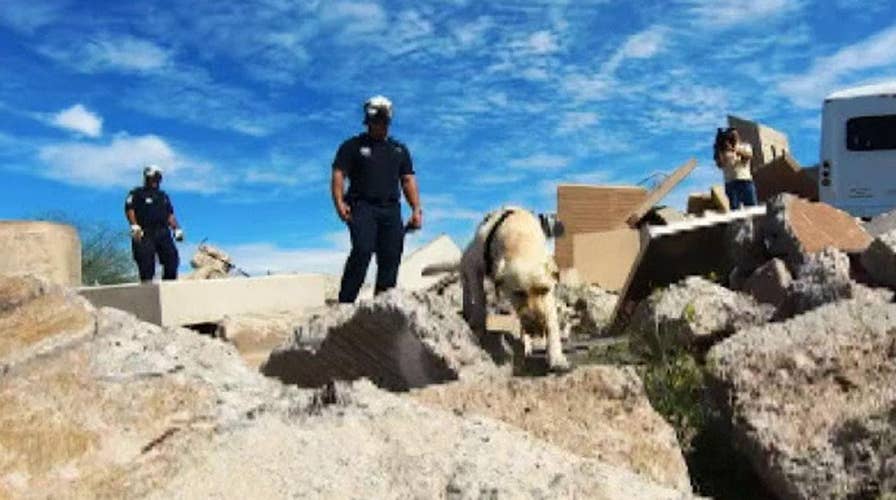Inside look at training for FEMA search and rescue dogs
Urban search K-9 teams from around the country converge in Phoenix to get their certification.
On the cusp of the 2019 hurricane season and in the wake of two busy hurricane seasons, strengthening the nation’s resilience for disasters is a top FEMA priority. We aim to reduce the impact of future disasters by engaging individuals and communities to create a culture of preparedness. Together we must act now to protect the future.
First, we need to build more resilient communities to reduce risks to people, property, and taxpayer dollars. Thanks to leadership by the administration and Congress, we are developing a new pre-disaster mitigation program called Building Resilient Infrastructure and Communities (BRIC).
BRIC will support measures to reduce the vulnerability of communities and public infrastructure before a disaster strikes. It will be funded by setting aside a percentage each year from FEMA’s disaster costs for mitigation grants in the following year. If this program had existed in 2017, $3.4 billion would have been available in 2018 for projects to prevent or reduce loss of life and property in future years.
FEMA ADMINISTRATOR BROCK LONG ANNOUNCES RESIGNATION
But federal funds are just one resource to mitigate the effects of future disasters. Communities must understand their risks and plan accordingly. Zoning laws (the where you can build) and building codes (the how you can build) are inherently local decisions. Wise decisions by local leaders can result in fewer homes, businesses, and infrastructure in harm’s way and protect what’s there by making it more resistant to disasters.
There is no better time to remind leaders of the need for the adoption and enforcement of strong building codes than right now, during Building Safety Month.
We have to change our posture toward disasters by getting ahead of the risks we face and not just responding to them.
Second, we need an informed and engaged public to take charge of their own preparedness. Hopefully our messages about the need for a family emergency communication and evacuation plan have resonated. But there’s more work to be done.
It’s not enough to have only emergency supplies such as food, water and medication. Disasters create costs like evacuation expenses you’ll need for a hotel and gas, and initial insurance deductibles to start recovery. We now have to think about the role financial health plays in being prepared.
FEMA and its financial wellness nonprofit and private sector partners continue to share messaging and resources that can be used to help build financial resilience in communities. Through resources such as the PrepTalk “Financial Literacy and Overcoming Liquid Asset Poverty,” and the FEMA Podcast “Making ‘Cents Out of Disaster Financial Preparedness,” we aim to help individuals and communities think through financial resilience.
There is not a more important or valuable disaster recovery tool than insurance. This includes flood insurance, which is not included in standard homeowner’s and renter’s policies. More broadly, many people don’t fully understand their insurance or know what kinds of coverage they actually have. I urge everyone to call their insurance agents today to find out.
For example, the average FEMA payment to uninsured disaster survivors in Texas following Hurricane Harvey was approximately $3,000. While the average flood insurance payment following the disaster was more than $117,000. Survivors working toward their recovery need to understand that FEMA’s programs were never intended to make them whole. Individuals have to invest and plan ahead for disasters or other emergencies that could take a significant toll on their financial well-being.
CLICK HERE TO GET THE FOX NEWS
Investing in mitigation and enhancing financial preparedness will help reduce the impacts of future disasters on individuals, communities, and the nation. We have to change our posture toward disasters by getting ahead of the risks we face and not just responding to them.
I urge you to join FEMA in this work by sharing this message and engaging where you can. Making a more resilient nation must be a shared goal, and a shared responsibility.

